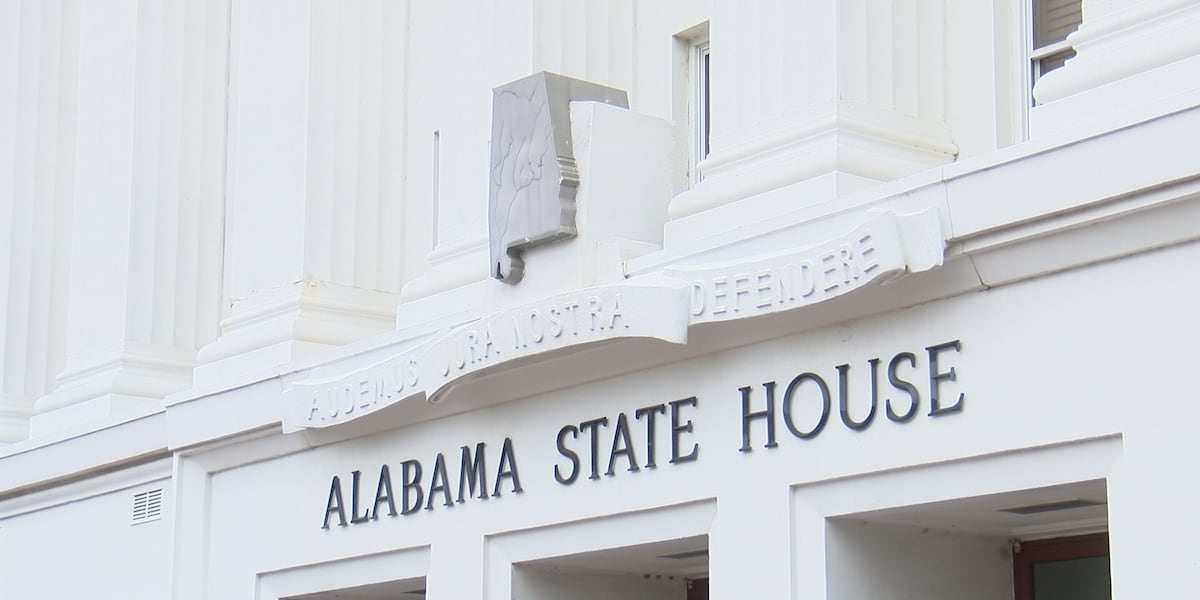Massachusetts
CLINE: If You Live in Massachusetts (Or New York or California), Every Day is Tax Day – NH Journal

Since 2021, half of U.S. states have cut personal income taxes. Only three states—Massachusetts, New York, and California—raised them. Guess how those three states are doing now?
All are shedding population and tax revenue.
In Massachusetts, state revenues fell for seven straight months through February. In January, Gov. Maura Healey announced $375 million in budget cuts to begin covering a projected $1 billion revenue shortfall. And don’t forget the historic population decline as residents flee to lower-cost states.
In New York, Gov. Kathy Hochul’s proposed budget fills a $4.3 billion deficit even as it projects deficits of $9.9 billion over the next four years. She proposes a $6 billion, 4.5 percent spending increase, and still projects future deficits. Last year, New York lost 112,000 residents.
California is even worse off. Facing a stunning $73 billion budget deficit, lawmakers last week voted to trim spending by $17 million, just for a start. California lost 75,000 residents last year after losing about half a million from April 2020 to July 2022.
Yet advocates of an aggressive and lavishly funded welfare state regularly hold up those states as ideals of good governance.
New Hampshire, we’re regularly told, is falling behind more enlightened states like Massachusetts, New York, and California because our taxes and spending are far too low.
The opposite is true, though. New Hampshire’s economy and people are thriving precisely because of our low-tax, low-spending culture that values self-reliance and personal responsibility over government dependency.
For starters, New Hampshire’s tax revenue this fiscal year is up, not down. State revenue through March is up $130 million over the same period during the last fiscal year.
Business tax revenues are down by $27 million compared to the same period last year. But that’s not because of business tax cuts, as some have suggested. (Business tax revenues have surged throughout the years of state business tax cuts.)
Businesses have to pay taxes quarterly, and those payments are based on what they estimate they’ll owe by the end of the year. If a business winds up overpaying, it used to be able to claim the entire overpayment as a credit toward the next year’s tax bill. Starting in 2023, legislators capped overpayment credits at 500 percent of the year’s tax bill. Anything over that would have to be refunded to the business.
Those overpayment refunds account for 46.4 percent of all business tax refunds so far this fiscal year, or $60.3 million. That’s more than double the $27 million by which business tax revenues have fallen below the previous year.
So it’s likely that the forced refunds are the cause of this year’s drop in business tax revenues. Those revenues are $27 million below the prior year but only $5.6 million below this year’s budget. Legislators clearly anticipated a drop in business tax revenue caused by the forced rebates.
New Hampshire’s revenues are very stable compared to New York’s, Massachusetts’, and California’s. That’s by design. Instead of relying heavily on personal income taxes and consumption taxes, New Hampshire relies on tax collections from business, property, insurance, real estate transactions, and alcohol and tobacco.
Our tax structure keeps spending relatively constrained and forces state government to operate more efficiently, which is why the state ranks as No. 1 in the nation for taxpayer return on investment (ROI) and has for years, in WalletHub’s annual survey. The site also ranks New Hampshire sixth in overall government services.
For government services, effectiveness, and value—not total spending—are the metrics that ought to matter. Keeping taxes low forces the state to do more with less.
Progressives don’t understand that the better measure of success for a government program is not how much it spends, but how well it spends. New Hampshire spends its money very well, at least relative to other states, because it has to get more out of every taxpayer dollar.
This doesn’t mean that New Hampshire doesn’t spend. Revenues for the current two-year state budget were projected to be $868.7 million, higher than the previous state budget. That fueled record state spending. The 2024-25 budget is 16 percent bigger than the 2023-24 budget. New Hampshire lawmakers definitely know how to spend when they have money sitting around.
The difference between New Hampshire and the profligate states of Massachusetts, New York, and California is that New Hampshire lawmakers lack the revenue-raising tools their counterparts in those big-spending states have. Without an income tax, New Hampshire legislators can’t simply “raise taxes on the rich” whenever they want to spend more money. Without a sales tax, they can’t raise hundreds of millions of additional dollars by nudging the consumption tax rate up a bit (for the children, of course).
All four states in this discussion are required by their constitutions to have balanced budgets. But only New Hampshire regularly avoids the drama of huge spending binges followed by huge budget cuts because only New Hampshire has a tax system designed to minimize government revenue and maximize economic growth.
In contrast with many other states, New Hampshire’s tax structure is well-suited to promote economic growth. It incorporates many features recommended by the Organization for Economic Cooperation and Development (OECD) for generating economic growth, including low corporate and personal income taxes.
Though progressives say otherwise, tax increases do reduce GDP.
Former Gov. Mel Thomson’s famous saying that low taxes are the result of low spending is true, generally speaking. But it’s also true that keeping taxes low discourages overspending. New Hampshire does this pretty well.
One question to ask yourself on Tax Day is whether you’d rather live in a state that overtaxes you to build a lavish welfare state and wastes billions of dollars in the process or whether you’d rather live in a state that taxes you less but wastes relatively little and provides high-quality government services in exchange for what it takes.
That ought to be an easy answer.

Massachusetts
Massachusetts Level 2 sex offender convicted of raping girls sentenced for child pornography

A Level 2 sex offender who was convicted of raping 7 and 8-year-old girls has been sentenced to prison after the feds busted him for child pornography.
Billerica man Eric Johnson, 51, was sentenced to 10 years in federal prison on Thursday, according to the Massachusetts U.S. Attorney’s Office.
The Level 2 sex offender — who was convicted in 1992 for aggravated felonious sexual assault of a child under 13 for raping two girls in New Hampshire — was caught possessing more than 5,000 files of child sexual abuse material.
Children’s clothing, mutilated dolls and diapers were also found at his home.
“Mr. Johnson is an extremely dangerous individual who has repeatedly demonstrated his predatory interest in children,” said Acting U.S. Attorney Joshua Levy. “He belongs in prison for a long time.
“The victims of child pornography are not abstractions or objects – they are real kids who experienced sexual exploitation in order for these pictures or images to be distributed and possessed,” Levy added. “Although today’s sentence cannot erase the ongoing pain endured by the victims from their traumatic abuse, the message about the severe consequences of possessing child pornography should be crystal clear.”
In early 2022, Johnson was identified as a user of a peer-to-peer internet network downloading child sexual abuse material. Police searches of his home resulted in the recovery of 25 electronic devices, including a laptop, hard drives and other electronic devices.
Multiple hard drives were found hidden next to Johnson’s bed — as well as hidden inside Johnson’s basement ceiling, shelves, cabinets, and in an ammunition can located in a crawl space at the residence. The laptop at the time was running a program to delete files from a hard drive, and was about 56% complete before being disabled by a forensic examiner.
Police also found two children’s backpacks from under his bed that contained various children’s clothing, including: bathing suits and a nightgown; a bag of children’s costumes; children’s diapers; and at least three child-sized dolls. What appeared to be bodily fluids were found in at least two of the dolls, police said.
A forensic exam revealed more than 5,000 files depicting child pornography on seven of the devices, including images and video files depicting the sexual abuse and rape of minor victims as young as infants and toddlers.
Many other disturbing items were also located on the devices, including images and videos of bestiality, photos of women’s deceased bodies, as well as videos of Johnson engaging in sexual acts with dolls.
“This lifetime sex offender admitted to amassing thousands of images of babies, toddlers, and children suffering horrific sexual abuse, and today’s sentence reflects the severity and depravity of his crime,” said Jodi Cohen, special agent in charge of the FBI Boston Division.
“Those photos and videos represent unimaginable pain forced upon utterly vulnerable victims, some too young to walk or talk,” Cohen added. “It’s cases like this that drive the FBI and our partners, as we work to protect the children in our communities from predators like Eric Johnson.”
In addition to the 10 years in prison, Johnson was sentenced to five years of supervised release. Johnson was ordered to pay restitution and forfeiture in the amount of $38,000.
Johnson pleaded guilty to one count of possession of child pornography earlier this year. He has remained in federal custody since his arrest in February 2022.
Massachusetts
Town Of Tewksbury Announces Board, Committee, Commission Openings

Information via Town of Tewksbury
TEWKSBURY, MA —Members of boards, committees or commissions provide a positive service that is invaluable to the continued progress of our town. They may advise the Select Board on a wide variety of issues by making recommendations on important matters. The detailed studies and considered advice of boards, committees or commissions are often catalysts for innovative programs and improved services. Serving on a board, committee or commission can be a rewarding experience for community service-minded residents. It is an excellent way to participate in the functioning of local government and to make a personal contribution to the improvement of our community.
There are a number of vacancies on boards and committees in town. The Select Board welcomes residents who have an interest in serving on the Town’s various Committees/Boards. Please complete our Online Application.
You may also request a printable copy of the application from the Town Clerk’s Office and return it to: Town Hall, 1009 Main Street, Tewksbury, MA 01876, Attn: Denise Graffeo, Town Clerk or via e-mail to townclerk@tewksbury-ma.gov
Those hoping to fill a vacancy should have their applications submitted by June 1st.
Boards with vacancies:
- Council on Aging
- Economic Development Committee
- Massachusetts Cultural Council
- Tewksbury School Facilities Study Committee
For more information, visit www.tewksbury-ma.gov.
Massachusetts
Healey’s hiring cooldown off to bad start: $14.2M added to Massachusetts public payroll

Nearly 200 employees joined the ranks of Gov. Maura Healey’s administration in the month after strict hiring measures were put into place across the executive branch to control costs amid flailing state revenues, according to a publicly available database.
The 199 workers who started their jobs between April 4 and April 28 collectively added more than $14.2 million to the $3 billion state payroll through yearly salaries alone with the highest-paid worker, a chief nursing officer at the Department of Public Health, taking home $159,120, a Herald analysis of state records shows.
The top five new hires, including the DPH nursing officer, make at least $134,515 a year, according to state records. Those hires also work in the Executive Office of Health and Human Services and the Department of Transportation.
A spokesperson for Healey’s budget-writing office said the 199 hires included positions for which job offers were made before the hiring measures took effect on April 3.
“It was always assumed and communicated that hiring would continue during this period through exempt positions and waivers for critical needs. We will continue to evaluate the state’s fiscal needs and make determinations about hiring and whether the timeline needs to be extended as we approach the end of June based on revenue collections, year-end spending, and other fiscal conditions,” the spokesperson said in a statement to the Herald.
The database covers new hires for externally posted positions and does not include internal promotions or lateral transfers within an agency, according to the Office of the Comptroller. The data does not reference any offers of employment that have been extended by the Healey administration but not yet made official.
Some offers of employment that have been publicly announced over the past month also do not appear in the database, which is organized by effective date of hire.
The list, for example, appears not to feature Alison Brizius, who was appointed last month by Energy and Environmental Affairs Secretary Rebecca Tepper to serve as the director of the Office of Coastal Zone Management.
Brizius, who starts in the role on May 6 and will earn a $155,000 yearly salary, accepted a job offer on March 26, according to a spokesperson for the Executive Office of Energy and Environmental Affairs.
Healey restricted the autonomy of executive branch agencies and departments to seek new employees last month without sign-off from her budget office. The move came in the face of struggling revenues and skyrocketing state-run shelter costs, two factors that have put pressure on Beacon Hill to rein in spending.
The immediate pause on hiring took effect April 3 and is initially scheduled to run through the end of June, according to a memo from the state’s interim chief human resources officer, Melissa Pullin. Hires, rehires, or transfers into the executive department are “permitted only where affordable within existing payroll caps,” the memo said.
But there is a lengthy list of positions across the executive branch that are exempted from needing sign-off from the state’s budget office, including seasonal hires, positions that are required to be filled by a court order or settlement agreement, returns from leave, and offers made before April 3.
Officials were asked to remove job postings that were not exempted and notify “applicants that the job opening has been temporarily suspended due to fiscal constraints,” according to the memo. Agencies had until April 16 at 5 p.m. to submit a waiver to hire new employees.
The spokesperson for the Executive Office of Administration and Finance said 176 waivers have been approved by the office, largely for full-time employees and positions that were posted before the hiring rules started.
Some 216 job postings for a total of 240 open positions were removed as of April 26, the spokesperson said. Job postings for which waivers were sought have not been removed, according to the spokesperson.
About a fifth of the workers who started a job in the Healey administration between April 4 and 28 joined the Department of Conservation and Recreation. A number of those employees were filling seasonal roles like temporary firefighters, greenskeepers, or conservation biologists, among others.
The Department of Conservation and Recreation alone added roughly $2.2 million to the state’s payroll, according to an analysis of the Office of the Comptroller’s database. Only a handful of new employees at the agency were permanent hires, the data showed.
A spokesperson for the Department of Conservation and Recreation said the agency largely operates on a seasonal basis, with spring through fall considered the busiest time millions are welcomed to parks, campgrounds, beaches, and pools.
The agency typically hires roughly 2,000 summer seasonal staff of which 700 to 800 are lifeguards and waterfront and pool staff, the spokesperson said in a statement.
The database also shows that the vast majority of new workers who joined the administration last month started their jobs between April 4 and April 9. Only three people started work in April after those dates, all of them at the Department of Developmental Services, according to the database.
Only one employee on the list who started work on April 7 at the Department of Developmental Services as a direct care worker had a reference letter from an elected state official, according to the data.
-

 News1 week ago
News1 week agoLarry Webb’s deathbed confession solves 2000 cold case murder of Susan and Natasha Carter, 10, whose remains were found hours after he died
-

 Education1 week ago
Education1 week agoVideo: Dozens of Yale Students Arrested as Campus Protests Spread
-

 World1 week ago
World1 week agoHaiti Prime Minister Ariel Henry resigns, transitional council takes power
-

 News1 week ago
News1 week agoFirst cargo ship passes through new channel since Baltimore bridge collapse
-

 World1 week ago
World1 week agoUS secretly sent long-range ATACMS weapons to Ukraine
-

 World1 week ago
World1 week agoSpanish PM Pedro Sanchez suspends public duties to 'reflect'
-

 News1 week ago
News1 week agoAmerican Airlines passenger alleges discrimination over use of first-class restroom
-

 World1 week ago
World1 week agoAsia bears biggest climate-change brunt amid extreme weather: WMO















